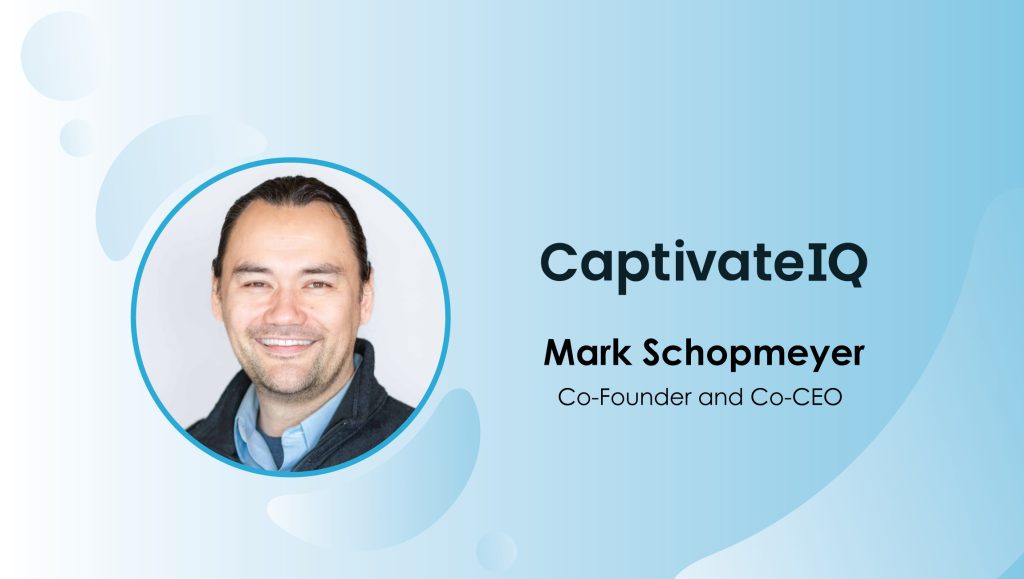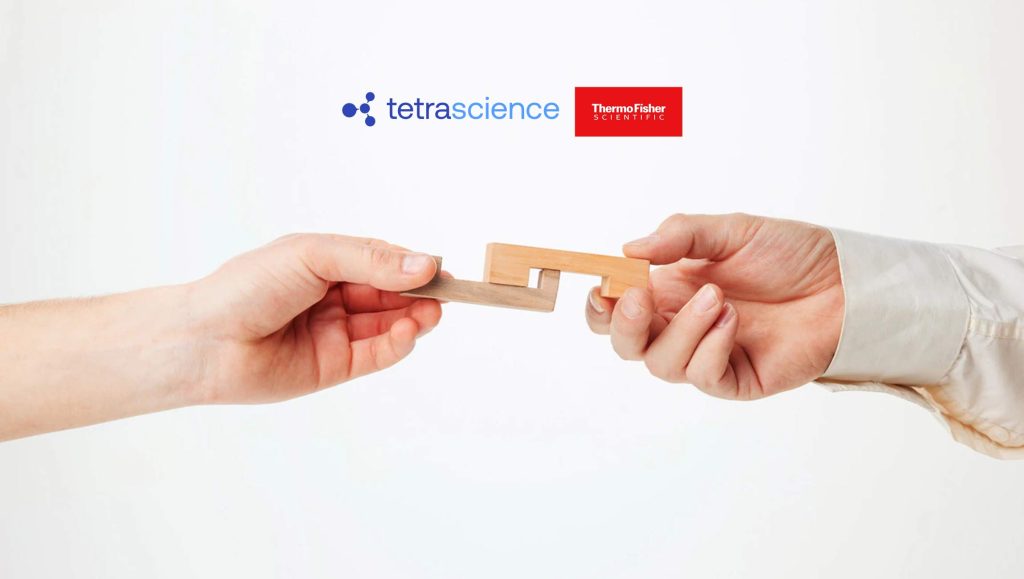Uncover more on what it takes to drive better sales compensation and incentive based employee pay models with Mark Schopmeyer, Co-founder and Co-CEO of CaptivateIQ:
________
Hi Mark, tell us about yourself and more about your role at CaptivateIQ. What inspired the platform?
Today, I’m the Co-CEO of CaptivateIQ and oversee GTM and other operational aspects of the company. Prior to CaptivateIQ, I’ve had a career in and around finance including working in companies, which is where I used to manage commissions. Having come from the problem directly, I was very familiar with the tough / thankless job of managing commissions. Bluntly put, I hated our commissions process. It was painful, archaic, these legacy tools made it more complicated than easier. My days were incredibly stressful trying to manage commissions with inadequate tools including spreadsheets to commercial solutions (one of the vendors told us many times our comp plans were too hard).
I think that’s the beauty behind all of this. My cofounder and I got together, we asked ourselves, what would it look like if we could build a solution for our old selves. That’s the vision we set out for the company, which is to take this thankless process and make it thankful as well as strategic for companies in this modern world. Core to our DNA is making this EASY to use AND more self-serviceable through a no-code interface. You’ll see this with our modeling centric approach that we call SmartGrid, which brings the power of something familiar like modeling in spreadsheets but engineered AND built for purpose specifically for commissions to make things easier / more adaptable / more real-time. This enables business users to own the system vs outside consultants.
How can today’s sales leaders craft better incentive commissions models to drive impact on the whole?
Incentive compensation is not one-size-fits-all. Every business model is different, and an organization’s path to growth constantly evolves as new product lines, go-to-market strategies, or market expansions are prioritized. Effective incentive compensation programs consistently reflect those business priorities even as they change. The most important aspect of incentive compensation program design is making sure it motivates the right behaviors and outcomes that align with the company’s goals, and is able to evolve as necessary.
What are some of the top findings from CaptivateIQ’s recent report on incentive-based pay?
The results of our recent Compensation & Motivation Pulse Survey – which polled 1,000 commissionable U.S. employees across go-to-market functions to explore the impact of incentive compensation and the role commissions or bonuses play in job motivation and satisfaction – point to incentive compensation being a powerful lever for job satisfaction and performance. We found for instance that 81% of employees say their ideal pay structure would include some degree of commissions, and a majority say working for commissions or bonuses motivates them to do a better job at work.
However, our research has also exposed some disconnects between employee expectations and employers’ ability to deliver timely, accurate payouts, which can actually have an adverse effect on motivation. For example, our 2024 State of Incentive Compensation Management Report shows that 82% of sales comp admins report being satisfied with their ability to provide clear visibility into how payouts are calculated, and yet less than half of commissionable employees report being completely confident in the accuracy of their payouts.
It’s clear that ensuring accuracy, timeliness, and transparency in incentive payouts – and also measuring the impact of incentives on performance – is essential for both boosting rep motivation and maximizing the efficacy of programs.
How can sales leaders and employers create more trust in the process to reduce employee concerns?
Here are some best practices to help ensure clarity, stamp out confusion, and inspire more trust:
- Offer full transparency into plan data and commissions calculations to improve comprehension.
- Deliver a standardized, real-time commissions calculator for reps to understand how much they could earn and what they need to do to get there.
- Incorporate AI to ease rep comprehension of complex plan documents.
- Highlight attainment performance relative to peers in a leaderboard format to encourage healthy competition.
Can you talk about some common ways B2B SaaS companies use incentive-based pay and how employees benefited with it?
Many companies use incentive-based pay as a means to motivate their sales reps, but for B2B SaaS companies in particular, thinking about how to enable success beyond implementation is a natural first step. In today’s era of efficient growth, it’s crucial that organizations incentivize reps to not only make the initial sale, but also to increase product adoption, showcase value, and reduce churn.
One example could be offering variable compensation for customer success reps who are responsible for adoption post-implementation. Designing plans that incentivize activities for customer success managers and others who directly impact customer adoption and engagement — including renewals, upsells, and advocacy — helps motivate and push performance to the next level.
Five do’s and don’ts you’d leave us with on incentive-based pay models before we wrap up?
Do align your incentive compensation strategy with business goals. It’s shocking how many organizations blindly pay out commissions without measuring if and how those incentives are driving the right outcomes. In fact, according to our recent State of Incentive Compensation Management Report, just 1/3 of compensation professionals actively align incentive programs with organizational goals and objectives.
Do set the bar for what good performance looks like. It might seem obvious, but many organizations miss this crucial step – it’s critical to define and communicate what a “high performer” looks like within the context of your business. This should include shared targets across teams, so everyone within the GTM org is looking at the same KPIs to measure success.
Don’t set your team up to fail with unattainable quotas. Ambitious compensation plans challenge and motivate your reps to do their best work, but while aiming high is a good strategy, it’s important to strike the right balance – unattainable quotas can adversely affect employee morale and prevent teams from meeting their targets. Quota-setting can go wrong when teams only focus on the ideal state, rather than what’s realistic based on the business structure and team dynamics. Compensation leaders must build plans that support business goals while also enabling payees to be successful.
Do review the performance of your incentive plans regularly. Regularly reviewing your incentives and quotas, and adjusting plans accordingly, not only ensures plans are aligned to company priorities and market changes, but also sets your sales team up for success in meeting and exceeding their goals.
Don’t overcomplicate plan rollouts or communication with reps. Because they include many variables, compensation programs are oftentimes complex – and it’s not surprising that reps can sometimes be confused by plan details. Clear and transparent visibility into plan mechanics and payout details help keep employees who are on a variable comp plan engaged and motivated.
Read More: Using Real-time Sales Analytics to Optimize Sales Performance
CaptivateIQ offers the smartest, most flexible way to automate sales commissions. Our innovative platform helps companies automate the administration, calculation, reporting, analysis, and management of even the most complex, variable-based commission plans. It is the only sales commission platform that can centralize and enrich data from disparate data sources into one powerful platform while also providing unbeatable flexibility and scalability to meet the needs of your organization.
Mark Schopmeyer, is Co-founder and Co-CEO of CaptivateIQ





















